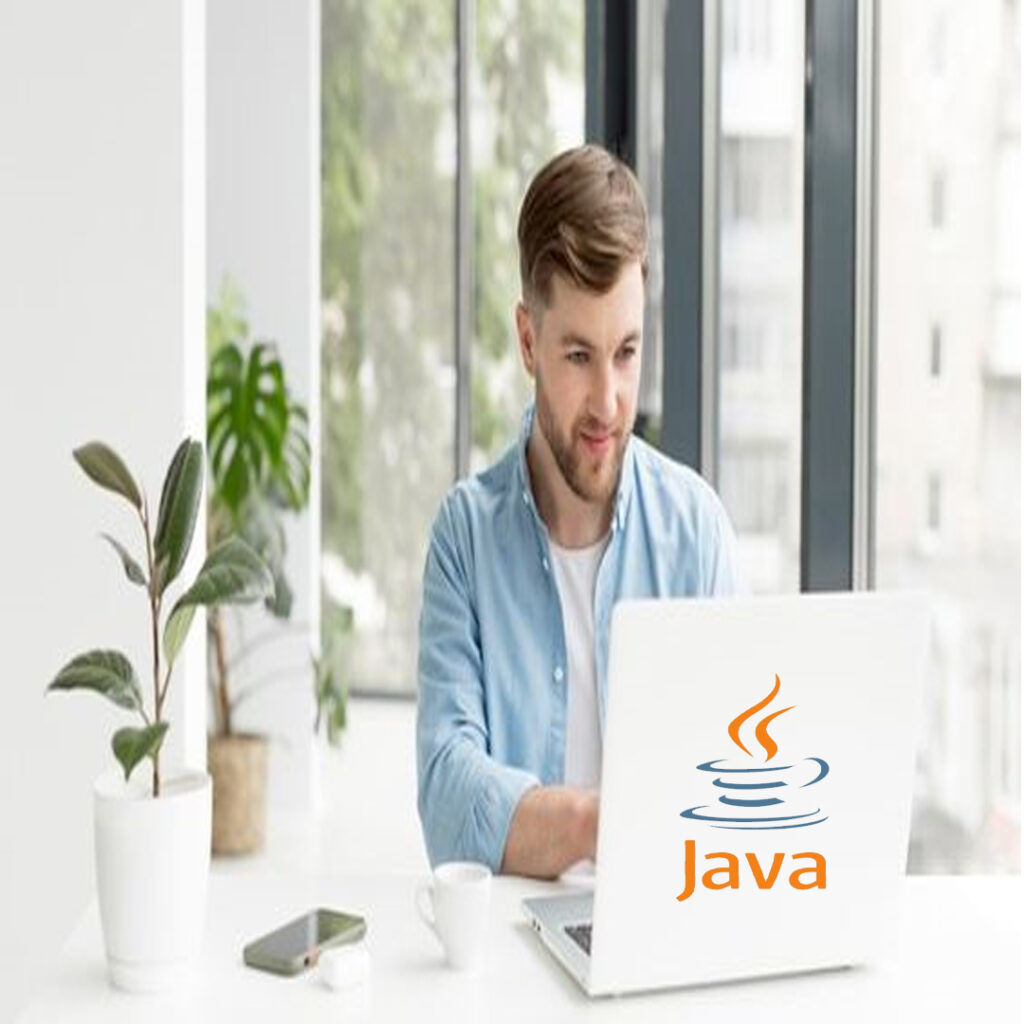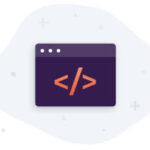
Java Training in Chennai and Pondicherry
Java Professional Training center, Java Training in Chennai and Pondicherry with Project
Intro to Java
Sun Microsystems Inc developed Java in 1995, which was later purchased by Oracle Corp. The language is easy to use. With Java, you can easily write, compile, and debug programs. Modular programs can be created using Java. Object-oriented and class-based, Java has one of the fewest implementation dependencies of any programming language.JAVA code can run on any platform that supports Java and was designed to allow developers to write once and run anywhere. All Java virtual machines can run Java applications because Java applications are compiled into byte code. C/C++ is similar in syntax to Java. Java has an interesting history. In 1991, Java was released. The Java language was developed in 1991 by Sun engineers James Gosling, Mike Sheridan, and Patrick Naughton. A public release of Java 1.0 was released by Sun Microsystems in 1996. This platform-independent runtime comes at no cost. Learn Java from the best Java Training Institute in Chennai and Pondicherry with real-time projects.

A Java developer is one of the most sought-after jobs today since the majority of large organizations are using Java in their software systems and backend services.
Programming in JAVA-COURSE CONTENT
Console Application
Session-1: Fundamentals of Object-Oriented Programming
- Introduction to OOP
- Basic Concepts of Object-Oriented Programming
- Benefits of OOP
- Application of OOP
Session-2: Java Evolution
- Java History
- Java Features
- How Java Differs from C and C++
- Java and Internet
- Java and World Wide Web
- Web Browsers
- Hardware and Software
- Java Supports Systems
Session-3: Overview of Java Language
- Introduction
- Simple Java Program
- An Application with Two Classes
- Java Program Structure
- Java Tokens
- Java Statements
- Installing and Configuring Java
- Implementing a Java Program
- Java Virtual Program
- Command Line Arguments
Session-4: Constants, Variables, and Data Types
- Introduction
- Constants
- Variables
- Data Types
- Declaration of Variables
- Giving Values to Variables
- Standard Default Values
Session-5: Operators and Expressions
- Introduction
- Arithmetic Operators
- Relational Operators
- Logical Operators
- Assignment Operators
- Increment and Decrement Operators
- Conditional Operators
- Bitwise Operators
- Special Operators
- Arithmetic Expression
- Evaluation of Expressions
- Precedence of Arithmetic Operators
- Type Conversions in Expressions
- Operator Precedence and Associativity
- Mathematical Functions
Session-6: Decision Making and Branching
- Introduction
- Decision Making with if Statement
- Simple If Statement
- If-Else Statement
- Nesting of If-Else Statements
- Else If Ladder
- Switch Statement
- Operator
Session-7: Looping Statements
- Introduction
- While Statements
- Do statement
- For statement
- Jumps in Loops
Session-8: Classes, Objects, and Methods
- Introduction
- Defining a Class
- Fields Declaration
- Methods Declaration
- Creating Objects
- Accessing Class Members
- Constructors
- Methods Overloading
- Static Members
- Nesting of Methods
- Inheritance: Extending a Class
- Overriding Methods
- Final Variables and Methods
- Final Classes
- Abstract Methods and Classes
- Visibility Control
Session-9: Arrays, Strings, and Vectors
- Introduction
- One-Dimensional Arrays
- Creating an Arrays
- Two-Dimensional Arrays
- Strings
Session-10: Interface: Multiple Inheritance
- Introduction
- Defining Interfaces
- Extending Interfaces
- Implementing Interfaces
- Accessing Interface Variables
Session-11: Multithreaded Programming
- Creating Threads
- Extending the Thread Class
- Stopping and Blocking a Thread
- Life Cycle of a Thread
- Using Thread Methods
- Thread Exceptions
- Thread Priority
- Synchronization
Session-12: Managing Errors and Exceptions
- Types of Errors
- Exceptions
- Syntax of Exception Handling Codes
- Multiple Catch Statements
- Using Finally Statement
- Throwing Our Own Exceptions
- Using Exceptions for Debugging
Session-13: Managing Input/output Files In Java
- Concept of Streams
- Streams Classes
- Character Streams Classes
- Using Streams
- Other Useful I/O classes
- Using the File Class
- Input/output Exceptions
- Creation of Files
- Reading/Writing Characters
- Reading/Writing Bytes
- Handling Primitives Types
- Concatenating and Buffering Files
- Random Access Files
- Interactive Input and output
- Other Stream Classes
Desktop Application
Session-1: Java GUI toolkits
- toolkits
- AWT
- Swing
- What is Swing
- Swing
- what is a GUI
- window
- Menu
- Button
- text Area
- Slider
- Scrollbar
- Frame
- JComponent
- JButton
- JLable
- JTextfield
- Jpanale
- Graphics
- JOptionPane
Session-2: Introduction to MySQL
- MySQL Installation
- DDL Commands
- DML Commands
- Operators
- Functions
- Constraints
- Joins
- Views
- Indexes
- DCL Commands
- TCL Commands
- MySQL Cursors
- Exception Handling
- Stored Procedure
- Stored Functions
Web Application
Session-1: Fundamentals
- Client, Server
- Port
- Application
- Web Server
- Application Server
- Web Client and Web Application
- Installation of Java and Understanding PATH and CLASSPATH
- Installation of Eclipse
- Installation of Tomcat and structure of Tomcat
- Linking any Web Server with Eclipse
- Static Resource Access from Tomcat
Session-2: Servlets
- Servlet Internals and Servlet Programming
- What are Servlets and why do we need Servlets?
- Servlet Development with Eclipse
- Purpose of Servlet Mapping and web.xml
- Servlet Architecture
- Servlet Life Cycle
- HTTP Internals
- A detailed discussion of all parameters of request and response packets
- Discussion of HttpServletRequest and HttpServletResponse interfaces
- Session Tracking API
- Cookies, URL Rewriting, and Hidden Form Fields
- ServletConfig Object
- ServletContext Object
- RequestDispatcher Object
- Filters
- Application / Attribute Lifecycle Listeners
- Why do we need Lifecycle Listeners?
- ServletContext and ServletContext Attribute Listeners
- Session and Session Attribute Listeners
- Programming examples
Session-3: JSP
- Java Server Pages( JSP ) Internals and Programming
- What is JSP? Why do we need JSP?
- JSP development with Eclipse
- JSP Life Cycle
- Predefined Objects of JSP
- request, response, out, and session objects
- config, application, page content objects
- Scripting Tags ( Writing Java code inside JSP )
- Directives
- @page, @include directives
- Action tags of JSP
- Difference between JSP:forward, JSP:include and @include tags
- Programming examples to illustrate each tag
- Expression Language
- Why do we need EL?
- Reading scoped attributes using EL
- Reading bean properties using EL
- Reading collections using EL
- Operators of EL
- Programming examples to illustrate each usage
- JSTL ( JSP standard tag library )
- Why do we need JSTL?
- Looping tags
- Control tags
- Database tags
- 118N tags
- Custom tags
- Custom tag creation based on Servlets
- Custom tag creation based on JSP
- Concept of TLD file
Session-4: JDBC
- Java Data Base Connectivity ( JDBC ) internals and programming
- What is JDBC? Why do we need JDBC?
- Discussion of JDBC driver types and Driver Manager
- Connection object
- Statement types and Discussion of each type of Statement Objects
- ResultSet Types and Discussion of each type
- Stored Procedure Access from java applications
- Transaction Programming with JDBC
- Savepoint and RowSet
- DataSource and Connection Pooling
- Batch Updates
- JNDI
- Explanation of Usage of important Practical Tools
- Eclipse
- Jboss, Weblogic, Tomcat
Web Framework Application
Session-1: Spring
- Spring core
- Types of containers
- XML configuration
- Core annotations
- Component – scan
- What can be injected into a bean
- Understanding core annotations
- Spring MVC
- Handler Mapping
- Controllers
- View resolvers
- Validators
- interceptors
- Spring DAO
- JDBC templates
- Exception hierarchy
- Spring ORM
- Hibernate template
- Integration with hibernate
- Spring AOP
- Point cut
- Advisors
Session-2: Spring Boot
- Introduction / benefits
- Spring Boot overview
- Bootstrapping a Boot application –
- Initializer
- Auto Configuration
- Spring Boot annotations
- Spring Boot properties
Session:3- Spring Boot profiles
- Accessing data with Spring Boot and h2 database
- Configuring Spring Boot with Spring MVC application
- Building a Restful web application with Spring Boot
REGISTRATION YOURSELF TO GET A FREE DEMO SESSION
Want more information about Java Course?
Give us your information Experts will call you.

Java FAQ
Is Java a good career choice?
Thus, a career as a Java software developer can be both lucrative and wise.Java is set to remain a top choice among businesses due to its strong community, enterprise support, and growing popularity among programmers. So Java career opportunities will remain strong for a long time.
Can I learn java in a month?
Java programming is something everyone would like to learn sooner rather than later, but it can be quite challenging. It is impossible to become a successful Java developer unless you practice all of its basic and advanced concepts. The following learning path will allow us to learn Java in just one month.
Why is Java so terrible?
A history of vulnerabilities in the Java software platform and Java programming language, including implementation of generics, forced object-oriented programming, the handling of unsigned numbers, and floating-point arithmetic, has resulted in criticism of the Java programming language and Java software platform.
Is Java good for beginners?
In spite of the fact that it may not be as easy to pick up as Python, Java is still a relatively beginner-friendly language because it’s a high-level language.In contrast, its startup time is slow, and beginners will have a hard time deploying their first project.
Is Java good enough to get a job?
Java is rated as among the most commonly used languages by Stackoverflow 2019, following JavaScript, HTML/CSS, SQL, and Python. As a result, there are enough jobs in this field and companies are actively using it for their projects.
What is the average salary of a Java programmer in India?
Java Developers in India are typically paid around ₹2.0 Lakhs per year (₹16.7k per month).To become a Java Developer, you need one year of experience.
Is Java the toughest language?
There aren’t many difficulties in learning Java. The Java language isn’t the easiest (despite what Java fanatics tell you) but it’s nowhere near the most difficult.
About Us
Best Methodology Learning with Java. Continuance Access for Student’s Portal, Study Materials, Videos & Top MNC Interview Questions. Guidance for Exam Preparation, Subject Materials, and Pre & Post Course Support. Learn from 8+ years of experience. Prepare for an interview with hands-on concepts. we are one of the best institute providing java training in Chennai and Pondicherry. Low fee structures with a well-designed Java course curriculum.
50+ HRS
Hands-on learning
3 Live
Convenient learning format
60+ HRS
Structured program with dedicated support
24/7
Lifetime Access To Support Team
Modes of Delivery in Training




About Course





Java Features

Object-Oriented

Performance

High Performance

Simple & Familiar

Cloud Database

Dynamic and Extensible

Secure

Distributed
YouTube Link: https://www.youtube.com/channel/UCoTtHeJZfbire-Akqk2Vapg/playlists
